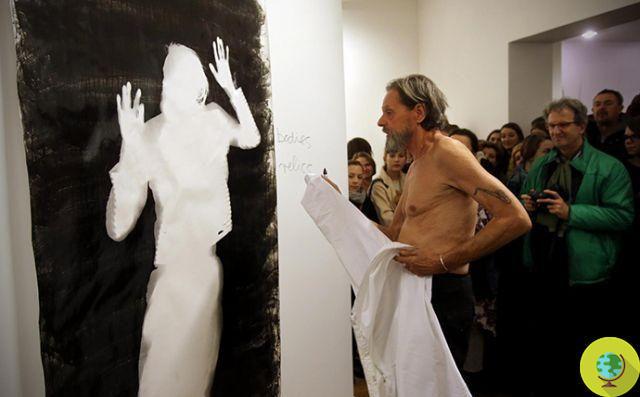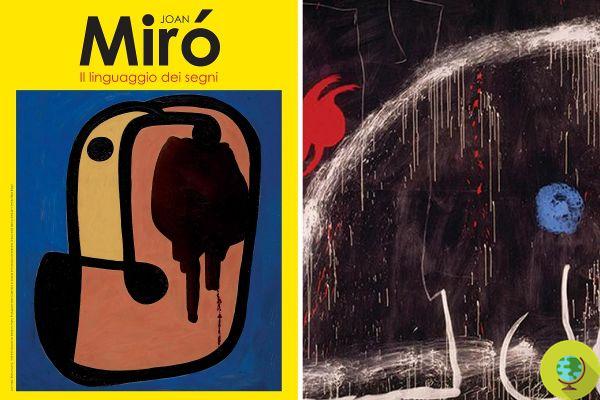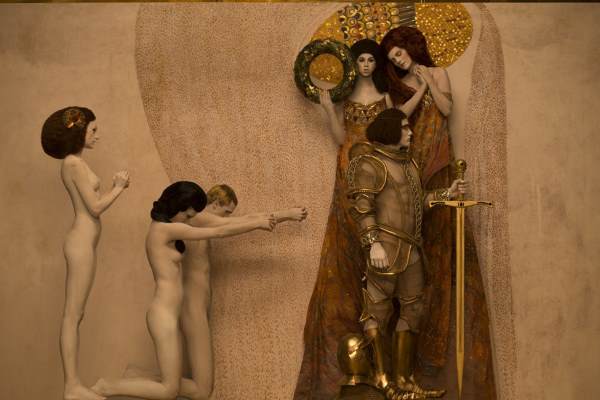
He is about to end up run over, his mother saves him
Carmen Consoli she is a songwriter, rightfully so. The way you use the passwords it is always precise, scrupulous, sharp, each word - within its passages - returns a concrete, clear, never tepid sensation. The listener cannot be distracted, because the stories he tells are never hints of life, but completed and resolved chapters. His songs have a beginning, an end and an end moral, a reason that justifies them, a profound sense that explains them. Each piece is there personification of a man or a woman, with its strengths, limitations, imperfections, beliefs and shortcomings. Each piece allows the listener to confront another person and, consequently, to to know himself, to observe one's most intimate truth, because Carmen Consoli's writing does not grant discounts or mitigating, it is unsettling and incisive, never condescending.
The singer-songwriter from Catania uses the sarcasm, irony, in this case a 'bitter irony, cutting edge, never predictable or pedantic. His songs investigate the flaws of the human soul, the difficulty of being and remaining human, of not allowing oneself to be compromised by the disharmonies of our times. They don't tell extraordinary stories, but of ordinary everyday life: the protagonists are ordinary people, who they are wrong through negligence, fear, distraction; they betray out of boredom, because it is easier than admitting that you are unhappy; they escape pain, but they don't even know what really makes them suffer; they fill their lives with everything, because they don't know exactly what they need. Carmen Consoli reveals human weaknesses with wit and ingenuity and reveals how much our society is guided and compromised byegocentrism.
Index
Signor Tentenna and Contessa Miseria, the story of two unhappy people
What is unhappiness, if not a lack of awareness of what one is and what one wants? This is the question that lays the foundations for two emblematic passages from Carmen Consoli's career, Mr. Tentenna e Countess Misery, perhaps not among the most famous pieces, but certainly among the most important because each of us investigates our own limits, our own shady areas. We could rightly define them as two healing songs in reverse: they don't teach us what we should be, but what we must never be.
Mr. Tentenna is an insecure man, unable to choose, blends in with the opaque background of his life and drags himself wearily to the end of the day; he doesn't care about his wife, about her unhappiness, about her unspoken and neglected pain; he doesn't even care about his daughter, who pays the price of a humble, helpless, distracted father. A man who escapes comparison with others and with himself, in order not to risk being defeated, and that, consequently, he is a loser (Ignorance is a non-negligible complex / A chasm, it can be hidden in silence / Avoiding the danger of a mild direct confrontation) .
Contessa miseria, on the other hand, is an adult and lonely woman, terrified of the passage of time and the consequences it has on its appearance. A woman with "the mind hibernating at twenty”And the body trying to stop the years going by. A deeply unhappy woman who tries to throw off the emptiness she feels so as not to feel its weight, but which she ends up becoming victim of herself (Contessa miseria, life sooner or later strikes by surprise / Without asking, without warning / Contessa miseria, the mind frozen at twenty, victim of the deception of this century / Who chases the myth of attractive shapes and cosmetic surgery).
Two different stories, therefore, but complementary: in fact, the protagonist, in both cases, is the fear of not knowing how to face one's limits; the solution that the two protagonists choose is to run away in order not to have to take on their responsibilities, to not have to admit their fears, to not have to ruin a imperfect and unhealthy balance, but actually comfortable. They prefer an unhappiness they are already accustomed to, rather than risking a happiness that requires commitment and determination.
Eva, Maria Catena, Tano and other stories ...
The characters of Carmen Consoli, therefore, are gods inept, of the unhappy, men and women who make - of their limits - a shelter from life itself, entrench themselves in their mistakes and do not look for a way out. Another emblematic example is All about Eva, which tells the story of an opportunistic and traitorous woman, who doesn't take responsibility for her mistakes, but he justifies them by calling them random facts (Yet you will have the courage to call the obvious coincidence), not gestures dictated by brutal cruelty. To exonerate yourself, swear to God you have no faults (You will cry while staging yet another drama / As tears run down your burning cheeks, Eve / And you will swear to God and your mother that you are not to blame as the tears run).
In The habit of returning, the protagonist is a man, who has had one for ten years clandestine relationship with a woman with whom he had a child. It is she who speaks, who tells how he is "faithful and anchored to the usual fold"; the lover is only a victim, who - out of love - has accepted the leftovers of a man who cannot decide, who perhaps will never decide and will live forever in the lie (How will you tell your wife that you have a son identical to you? / He has big black eyes and at the age of three / He's small and can't ask, he doesn't have to ask / You will answer if you want). And then there is Tano, a narrow-minded, ignorant, cowardly man, a bully. Tano, a piece in Sicilian dialect, tells the story of one woman subjected to the figure of her man; a piece, this, which - more than a thousand slogans - manages to tell how the psychological violence is a very subtle and suffocating act, no less serious than physical violence. It is the chronicle of a marriage based onignorance: he believes he has the right to be able to enslave his wife, she believes he has a duty to allow himself to be subjugated.
And then there is Maria Catena, a song in which the singer-songwriter no longer denounces the behavior of a single, but of awhole society is rotten and bigoted. The piece tells the story of a woman who is the victim of the slanders of her fellow villagers, but who trusts - in her heart - in her in divine justice. The village priest, however, learned of the gossip circulating, he denies her the host during Mass. And so every lie, in the long run, becomes truth (And you are still serving the unjust sentence / In the sad circle of backbiting / And you wonder if more than a spite / Your name was an omen).
Carmen Consoli, who has perhaps never been fashionable, can indulge in the uncommon luxury of being a timeless artist, without borders and, above all, without expiration. The stories she tells are universal, have no sex, resist the passing of years and lend themselves to more reading. And, more than anything else, they strip the human being of all hypocrisy and defense: the man remains as he is, naked, helpless, with all its limitations reflected in the mirror in which he is forced to look at himself. Carmen Consoli forces us to observe what we never want to be.
video.
Listen to the above songs:
Mr. Tentenna
Countess Misery
You might also like:
- Niccolò Fabi's song has become a real "medicine", better than psychotropic drugs
- Samuele Bersani's 'medicine song' that helps to cope with panic attacks
- Fiorella Mannoia's beautiful message to women: continuing to learn means being alive
- Marco Mengoni's song that celebrates Frida Kahlo and her ability to transform pain into beauty
- “Jesus Christ is me”, the Levante manifesto song that tells of violence against women

























